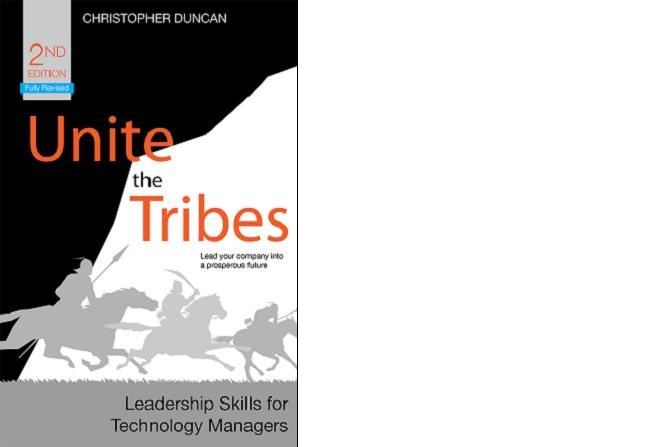Unite the Tribes Excerpts
Leadership skills for technology managers
A Noble Empire
Whether you're talking about the Greeks, Camelot, or America, you're going to find flaws. In fact, since an empire is a collection of people and humans tend to be a pretty screwed up lot, such imperfections are impossible to avoid. To get a better sense of this, think about your extended family and the potential for a bit of dysfunctional behavior here and there. If you think it's a mess with just a handful of relatives to deal with, imagine what it's like when you have an entire empire of them.
Of course, most of us today aren't trying to build a nation. We're working within our given organization to achieve our personal and professional goals. If we're fortunate, that vision is in harmony with the group we're in.
As a leader, you must think in practical terms. Think about the amount of time and money that's wasted as the result of disgruntled people. Most of them didn't start out that way. That's the direction their managers took them in. A common cause for this is short-term thinking, being fixated on the quick buck rather than working for long-term success. Short-term gains at the cost of the people you lead are, more often than not, long-term disasters. Creating an environment that your people can believe in, on the other hand, produces tremendous results.
This isn't just naive hippie idealism. In the business world, for example, it's a hard-nosed fact. Apple has almost always been an idealistic organization, due entirely to Steve Jobs, a classic charismatic leader. When the company shifted management to the more corporate style of John Sculley and ousted Jobs, that idealism waned and they had their head handed to them by Microsoft.
Those who would lead dedicate long hours and give body and soul in service to their vision. If you're going to sacrifice that much to build something, build to last. Clearly, if you have what it takes to unite the tribes, building a noble empire is the path to a lasting success.
